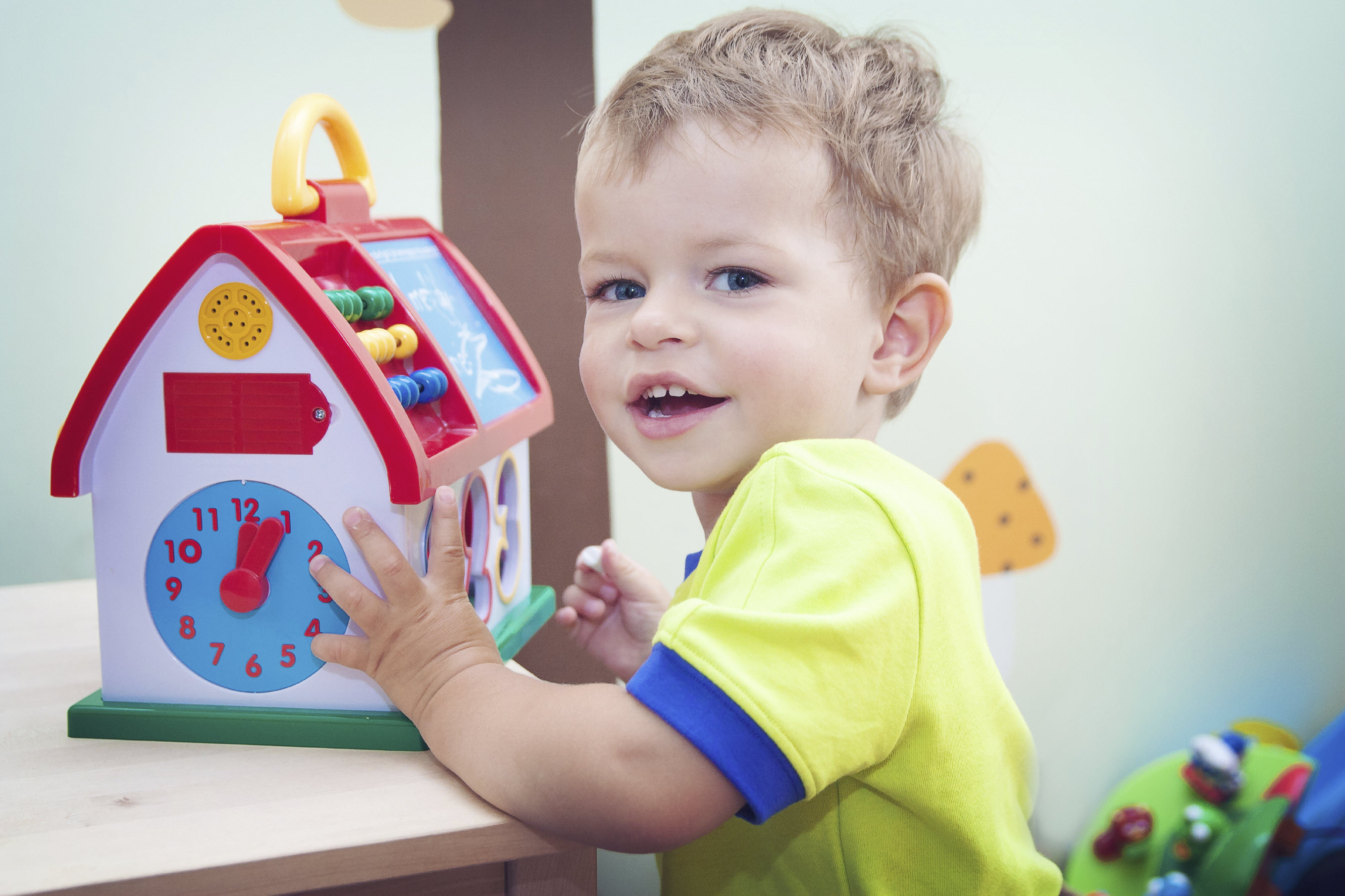
Two-year-old Kylie Baxter of Steilacoom, Washington, has a burgeoning vocabulary; along with standard object-labeling words (“dog,” “blocks,”) she uses phrases peppered with “feeling words” like “I’m happy,” and “I pretend!” that help her mom, Brianna, understand what she’s thinking. These phrases do more than boost parent-child communication, though. According to new neuroscience research from University of Washington, this type of language could aid Kylie’s social success when she enters preschool.
Per new research from the Institute for Learning & Brain Sciences at University of Washington, toddlers with a more robust vocabulary of “mental state words,” like “love,” “mad” and “think” have higher levels of “social cognition” (read: awareness of the thoughts and feelings of others) in preschool.
In other words, toddlers who are better able to describe their feelings have a better idea of how others are feeling two years down the road. And these skills can translate into higher levels of empathy and understanding in preschool, when children are learning to interact with others, says lead author Rechelle Brooks, Ph.D., research assistant professor at UW’s department of Psychiatry & Behavioral Sciences.
Language links
Previous I-LABS research establishes that the babies are laying the groundwork for language long before uttering their first word. In this study, published in the Journal of Experimental Child Psychology in February, researchers tracked gaze-following — a baby’s ability to follow an adult’s gaze to an object — in 10.5-month-old infants.
The study tested the vocabulary of the same children at 2.5; on average, the toddlers knew about 130 “non-mental state” words — verbs like “jump” and adjectives like “small”— and about 10 mental-state words describing thoughts and feelings, like “pretend,” “sad,” and “angry.” Babies with good gaze-following not only had more words at 2.5, they also knew more mental-state words. At 4.5, these same children demonstrated more ability to distinguish the thoughts and feelings of others, an important building block of social success.
The link between gaze-following and larger vocabulary suggests that gaze-following serves to introduce infants to another person’s point of view, says Brooks. This awareness that they are viewing the same object as another person — a significant mental milestone for an infant — creates an early framework for social cognition.
So it wasn’t surprising that better gaze-following translated into a bigger mental-state word vocab and ultimately to higher levels of social cognition in preschool, says Brooks.
To measure “theory of mind,” or awareness of what others are thinking, 4.5-year-olds in the study were given several tests, including this one: a doll, Sally, places an object in a basket, then leaves the scene. Another doll, Anne, moves the object from the basket to a box. Sally returns; where should she look?
The Sally/Anne quiz tests preschoolers’ ability to distinguish what they know from what someone else knows, stumping many. But researchers found that the toddlers who had more mental-state words at 2.5 had a better grasp of others’ thoughts as preschoolers, and were more likely to puzzle out the right answer.
“When kids had more words to talk about what’s in their minds, they were able to perform better in the tasks related to what other people know,” says Brooks.
“It seems that maybe words are an invitation to a concept,” says I-LABS co-director Andrew Meltzoff, Ph.D., a professor of psychology at UW. “In other words, if kids hear words for mental states they become even more interested in the invisible interior world of other people.”
When children begin to use those words themselves, they’re better able to converse about thoughts, wants, emotions, which leads to more interaction and discussion about ideas and thoughts, says Meltzoff.
“It’s a virtuous cycle: Language begets social understanding and more social interactions begets more opportunity to learn vocabulary about the mind, which also helps social cognition.”
How does this translate to the pre-K playground? “We would expect that children with higher levels of social cognition to be more considerate, because they can put themselves in others’ shoes,” says Brooks. “If they think you’re hungry or thirsty, they might offer you something to eat or drink. They might share what they have. Lots of good can come out of it.”
Building blocks
Parents can boost toddler’s mental-state vocab without too much effort, says Brooks. “It’s about going beyond talking about objects to talking about what you know, what you remember. So if you go to the store that day, talk about what you remember about what your child remembers. When you’re reading a book, go beyond the story on the page to talk about what characters might be thinking and feeling. Does he seem happy? Is she just pretending? ”
With a preschooler, you could say, “I lost my keys, where should I look?,” Brooks says. These types of questions and games help children understand that what they know differs from what others know.
Talking to children about ideas, feelings, wants, and goals may be especially valuable to learning, says Meltzoff. “Language about the mind increases understanding about the internal workings of other people.”
Think quality, not quantity, he says. “It’s not simply the amount of words you use in front of the child or how big your child’s vocabulary is, but what you talk about and what the child talks about.”
“Language and social understanding are deeply intertwined, and quality seems to matter.”
This fall, Kylie Baxter will attend Tacoma’s North Orchard DeLong preschool, and Brianna is already prepping her for typical Pre-K experiences: meeting new friends, sharing toys, and conversing with peers. Thanks to her budding mental-state vocabulary, she may already hold a ticket to a high-quality early leaning experience, one that’s connected and socially rich.











